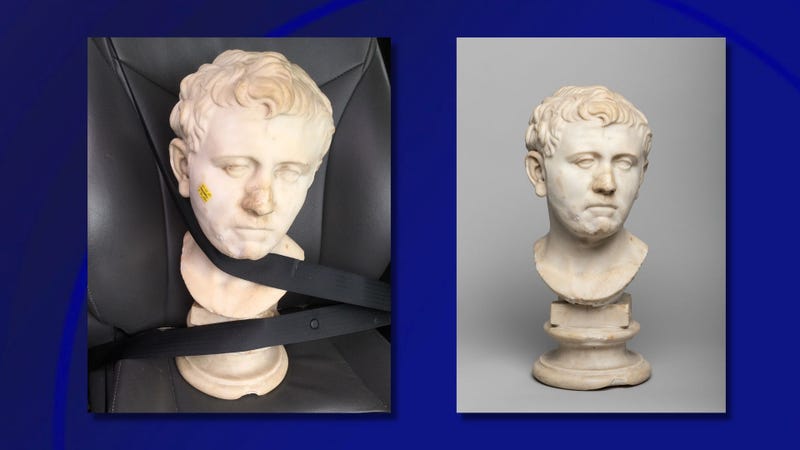
It's true, you never know what you'll find at a thrift store. A 2,000-year-old bust of a Roman general that had been missing since World War II somehow ended up at a Goodwill store in Austin, Texas where a woman paid $34.99 for the "priceless" artifact.
It seems like Macklemore was onto something when he made a whole song about thrifting. Not only can shoppers find amazing treasures just like this, but there are many benefits to thrifting around town as well. According to Goodwill of Ohio Valley, thrift shopping helps reduce waste. "Manufacturing, producing, packaging, and distributing new clothing takes a lot of energy and water. Disposing of unwanted clothing also takes a toll on the environment. In the United States, individuals throw out 60 to 80 pounds of textile waste each year."
If reducing your carbon footprint wasn't convincing enough, going thrifting is a great way to create a unique style that can't be duplicated. Being that style icon in the office that everyone looks up to is an honor and you can get there by thrifting. Goodwill lists that in addition to having a great one of a kind style that price is a great selling point to go thrifting. Shoppers can find good and great quality items and brands for just pennies on the dollar.
Even when shoppers can't find exactly what they are looking for, it's a great place to start with creating one of a kind art and furniture with a DIY project, especially with a quick scroll through Youtube, anything is possible to make.

Laura Young said she found the bust under a table at the store in 2018. Curious about it, she started to do a little research online and found it was more valuable than she thought. It turns out it was looted from a museum in Germany that had been bombed during the war.
Young made a deal with Germany to take back the bust, the terms of which are confidential. But before it makes the 5,300-mile trek back to Europe, it'll be on display at the San Antonio Museum of Art.

LISTEN on the Audacy App
Sign Up and Follow Audacy
Facebook | Twitter | Instagram


